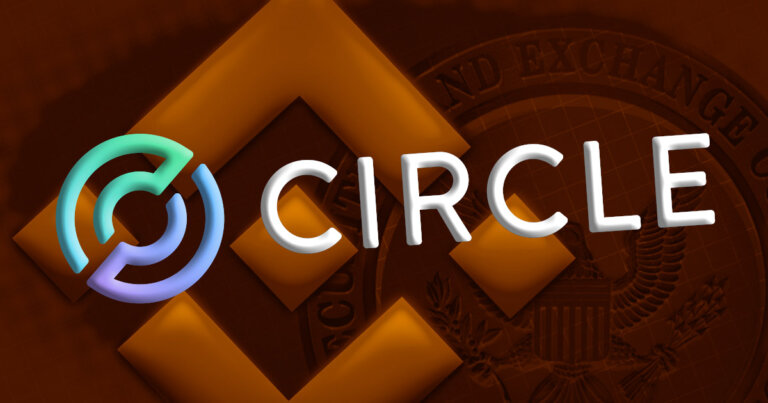 Circle steps in with amicus brief in Binance SEC battle over stablecoin classification
Circle steps in with amicus brief in Binance SEC battle over stablecoin classification Circle steps in with amicus brief in Binance SEC battle over stablecoin classification
The stablecoin issuer argues that financial trading regulations should not be applied to stablecoins tethered to other assets.

Cover art/illustration via CryptoSlate. Image includes combined content which may include AI-generated content.
Stablecoin issuer Circle has filed an amicus curiae brief in Binance’s case against the U.S. Securities and Exchange Commission (SEC), according to Sept. 28 court filings.
In legal terms, amicus curiae, Latin for “friend of the court,” designates an individual or group not directly involved in a case but with a significant stake in its proceedings. These parties can exert influence by presenting written arguments, known as “amicus briefs,” expressing their views to the court.
Circle’s interest in the matter revolves around the SEC’s classification of the Binance-backed BUSD stablecoin as a security. While Binance has vehemently rejected this categorization, Circle further asserts that financial trading regulations should not be applied to stablecoins tethered to other assets like the U.S. Dollars.
Additionally, the USDC issuer contends that BUSD cannot be deemed a security because its users do not anticipate profits from its purchases.
This standpoint aligns with that of venture capital firm Paradigm, as expressed in its amicus curiae brief in the Terra-SEC case. In their filing, Paradigm strongly opposed the SEC’s classification of stablecoins as securities, cautioning that such a regulatory stance could have detrimental consequences for stablecoins and the broader landscape of digital asset innovation.
Non-profit organization files amicus in support of Binance
Meanwhile, a non-profit organization, Investor Choice Advocates Network (ICAN) also filed an amicus brief in support of Binance on Sept. 28.
According to ICAN, its interest in the case lies in ensuring that the SEC’s power to regulate securities does not improperly hamper the ability of individuals and organizations who choose to transact in digital assets.
The organization added:
“The SEC’s ambiguous and expansive interpretation and application of the Securities Act of 1933 (“Securities Act”) and the Securities Exchange Act of 1934 (“Exchange Act”) to digital assets would have far-reaching negative impacts on the opportunities available to investors.”
Due to this, ICAN wants the Court to accede to Binance’s demand to dismiss the SEC case against it, saying the regulator’s litigation efforts are designed to expand its jurisdiction over the emerging industry.



 CoinGlass
CoinGlass 


 Farside Investors
Farside Investors 


























































































